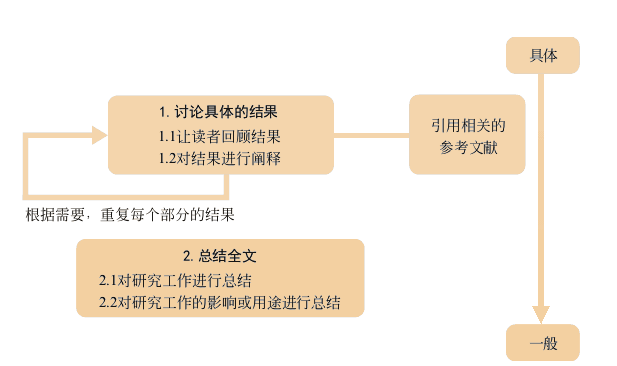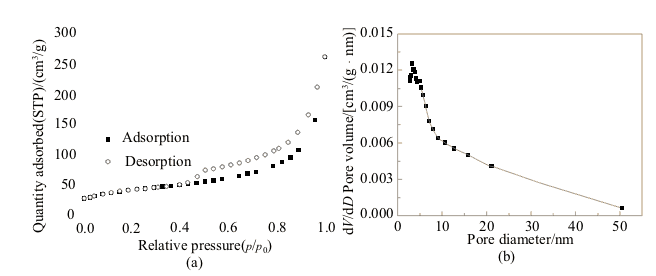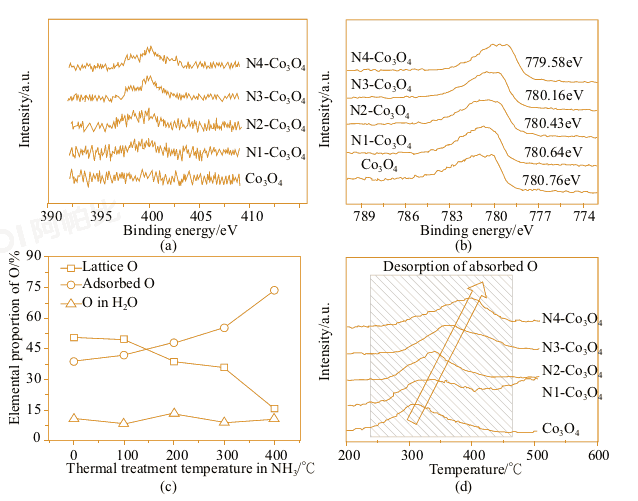Discussion (讨论)部分非常重要。在这部分,你要把“结果”中展示的证据线索和“前言”中的背景资料关联起来。但是,许多作者(特别是来自非英语国家的作者)常常不够重视“讨论”部分,认为只需把结果罗列出来,然后让读者自行去得出结论即可。但是,给出结果而不说明其意义会造成结果被随意解读,减小了研究的影响力。而期刊编辑往往希望论文能推进该研究领域,并形成影响力,所以有必要善用“讨论”部分来尽可能增强论文的影响力。
Discussion是一篇科技论文中非常难写的部分之一。Discussion 最考验一个作者研究问题的深度和广度。深度就是论文对于提出问题的研究到了一个什么样的程度,广度是指能否从多个角度来分析解释实验结果。因此,Discussion的写作,一般分为下面三个步骤:
选择要深入讨论的问题。Results中 有的结果是重要的,有的则可一笔带过。选择合适的结果在Discussion部分进行深入讨论。一般来说,可根据如下原则来判断:如果你的结果体现了实验的独特性,是其他研究中没有得到的,那这个结果就是要重点讨论的问题;有些结果和前人的研究一致,并没有显着性差异,就应该一笔带过而无需深入讨论。Discussion 的一个重要作用就是要突出自己研究的创新性,并体现出显着区别于他人的特点,区别体现的是创新。
对选中的问题按一定层次从多个角度进行讨论,说理要有根据,问题要讲清楚、讲透彻。选择的问题有时不止一个(多数情况是2个以上),因此要按一定层次描述清楚。一般来说,把最重要的放在中间,次之的放开头和末尾。放在中间能将审稿人的情绪带至高潮,前面是铺垫,后面是总结。好的Discussion应当从多个角度展开深入讨论:首先要有类似结果的对比,说明自已结论的独特性。其次要系统阐述为什么会有这样的结果,方法有多种(从实验设计角度、从理论原理角度,从分析方法角度,或借鉴别人的分析方法等)。重要的是将这个问题深入阐述清楚,不能让人有意犹未尽之感(尽管审稿人总.会提出新的问题,我们仍要尽量做到这一点)。
保持与Results的一致性,即结果和讨论要一一对应。千万不要出现按讨论的内容可以推出与实验相反的结论这种情形,那证明你的讨论思路彻底的失败或你的实验压根儿就是失败的。所Discussion的文字描述和语言表达的精确性尤为重要。写作过程应当注意英文表达的习惯,避免出现误解。
Discussion部分的写作也有特定的结构。如图1所示,Discussion 可分为两部分,当Results部分通过表征或计算等手段得到了具体的结果之后,Discussion部分可以对其进行具体的讨论,它是一个对Results深化、直观化的过程,使读者能迅速了解表征或计算结果的具体含义。一篇科技论文中常有多个Results,正确的SCI论文写作方法是对每一个结果都进行详细的讨论分析,因此,在这里常会出现两种结构“R1&D1,R2&D2,R3&D3”或“R1R2R3.& D1D2D3”,即要么是一个结果跟一个讨论,要么是一系列结果跟一系列讨论。两种分析讨论的模式应根据实际需要选择。因此,结构1在Discussion中常常会重复多次。在完成了所有表征或计算结果的讨论后,便进入了结构2的写作。结构2是对全文的结果与讨论(Results & Discussion) 的总结,包括研究工作的具体情况、实际用途以及带来的具体影响等。这部分是将具体的Results一般化、通俗化。对于一个非本领域的读者来说,Discussion的第1部分可能会看不懂,但是Discussion的第2部分则一目了然。因此,在进行这部分写作的时候,切记不要写太多专业性知识,导致审稿人或其他读者阅读时觉得晦涩难懂。

图1Discussion部分结构示意图
1 Discussion 须知
好的“讨论”( Discussion)可以在开头先重申一下“前言”中提出的研究问题和假设,接着总结主要研究结果。这样读者能迅速了解你是否推进了该领域的研究。从最重要或最相关的结果写起,然后再转向相对次要的内容。此刻暂不要讨论有争议或者难以解释的结果。这个阶段,你只需描述那些能直接回答“前言”中提出的问题或与假设直接相关的主要结果。避免使用数据不支持的“大而空”的语言,也不要夸大结果的重要性。用“suggests” 比用“shows”更好,切忌使用“proves”。 此外,尽量不要重复“结果”部分的内容,只需简要说明主要结果然后再谈其含意。这部分需要变换时态,叙述你的结果以及文献结果时用过去时,论述其意义时用现在时。
“讨论”的第二部分常被忽视,重申问题和结果之后,还需要陈述其相关性和重要性。需要把结果放在文献研究背景中加以比较,并讨论其意义。这部分构成了“讨论”主体,这部分告诉读者和编辑:从已有文献的基础上来评价,研究结果有何价值?它们与其他研究者的工作之间存在什么关联。你的研究可能存在备择解释,对此应予提及并尽可能排除(或者至少论证它们的可能性很低)。如果仍有备择解释无法排除,你的研究就属于“尚未完成”或“尚在进行中”;在这种情况下,应当在“讨论”的结尾部分,提出将开展哪些实验来进一步排除备择解释或确认哪种解释才是正确的。
主要结果和背景的关系理清之后,就可以提及有争议或难以解释的发现,并提出可能的解释。这里你可以猜测,因为你讨论和阐述了这些问题,而不是置之不理。“讨论”部分不能出现新术语或新结果;所有结果都该在“结果”部分叙述完整;所有术语也应在“前言”中就提出。最后,“讨论”部分要解释一下此研究的局限性。与其等审稿人指出,不如自己提出;这样也许能够增加正面审稿意见从而缩短发表周期。-一个研究存在局限性并不是问题,大多数研究都有一定的局限性。所以重要的是要承认它并提出在进一步研究中如何克服。在阐述完局限性之后往往紧接着就是描述未来的研究。有些期刊有单独的“结论”部分;如果没有,需要在“讨论”的最后一段点明研究的结论。最后一段(或最后一部分)应简要复述一下主要研究结果及其重要性,陈述该研究如何推进了本领域的发展,但不要用完全相同的语言。要提及结果的新颖性和重要性,但不要夸大其词。如有必要可以提出进-步研究,如果本工作是初步研究则进一步研究可放在最后一句。若不是初步研究,就可以用明确的措施来总结本研究的影响。
2 具体的写作方法
1.怎样提出观点
在提出自己的观点时,采取什么样的策略很重要,不合适的句子通常会遭到reviewer质疑。
①如果观点不是这篇文章最新提出的,通常要用“We confirm tha..."。
②对于自己很自信的观点,可用“We believe that.."。通常,由数据推断出一定的结论,用“Results indicate/infer/suggest/ imply that.."。
③在极其特别时才可用“We observe/ discover/put forward.. . for the firsttime”来强调自己的创新。
④如果自己对所提出的观点不完全肯定,可用“We tentatively put forward( interpreted this to... )”或 “The results may be due to/caused by/attributed to/resulted from.."或“This is probably a consequence of..”或“It seems that.. .canaccount for ( interpret) this.."或“It is possible that it stems from.."。
要注意这些结构的合理搭配。如果通篇是类型①,那这篇文章的意义就大打折扣。如果全是②,肯定会遭到质疑。所以要仔细分析自已成果的创新性以及可信度。
2.连接词与逻辑
写英文论文最常见的毛病是文章的逻辑不清楚,解决方法如下。
(1)注意句子上下连贯,不能让句子独立
常见的连接词有however, also, in addition, consequently, afterwards ,moreover,furthermore, further, although, unlike, in contrast, similarly,unfortunately,alternatively, parallel results, in order to,despite, forexample,compared with, other results, thus, therefore等。 用好连接词能使文章层次清楚,意思明确。比如,叙述有时间顺序的事件或文献,最早的文献可用“A advocated it for the first time”,接下来可用“Then,A furtherdemonstrated that",再接下来,可用“Afterwards, ...",如果还有,可用“More recent studies by A”。如果叙述两种观点,要把它们截然分开。比如,“A put forward th...In contrast, B believe/Unlike A,B suggest/On thecontrary" (表明与前面观点不同的观点)。如果只表明两种观点对立,用“incontrast B..’。如果两种观点相近,可用“A suggest.. .Similarly/Alternatively/A or B/A or B also des.."。 表示因果或者前后关系可用“consequently/therefore/as a result.."。 表明递进关系可用“ furthermore/further/moreover/inadion.."。写完一-段英文,最好首先检查是否较好地应用了这些连接词。
(2)注意段落布局的整体逻辑
当我们要叙述一个问题的几个方面时,一定要注意逻辑结构。第一段要明确告诉读者你要讨论几个部分。如: Therefore, there are three aspects of thisproblem have to be addressed.The first question in volves ..The second problemrelates t...The third aspect deals with..清晰地逐层叙述观点。也可以直接用first,second, third, finally等。 当然,furthermore/ in addition 等也可以用来补充说明。
(3)讨论部分的整体结构
小标题可以有效地将讨论部分分层。通常第-一个片段指出文章最重要的数据或结果;补充说明部分放在最后一个片段。文章的读者分为多个档次;除了让本专业的专业人士读懂以外,一-定要让更多的外专业人读懂。所以可以把讨论部分分为两部分,一部分提出观点,另一部分详细介绍过程以及论述的依据。这样专业外的人士可以了解文章的主要观点,将比较专业的讨论当成黑箱子,供本专业人士进一- 步研究。
3.讨论部分包括什么内容
①主要数据及其特征的总结;.
②主要结论及与前人观点的对比;
③本文的不足。
对第三点,一般作者看来不可取,但给出文章的不足恰恰是保护自己文章的重要手段。刻意隐藏文章的漏洞是非常不明智的。所谓不足,包括以下内容:
①研究的问题有点片面,讨论时一定要说明。例如: It should be notedthat this study has examined on ly/We concentrate ( focus ) on only/We have to .point out that we do not/Some limi tations of this study are...
②结论存在不足,可用下列句式说明The results do not imply/The resultscan not be used to determine ( or be taken as evidence of ) /Unfortunately, we .can notdetermine this from this data/Our results are lack of等。但指出这些不足之后,一定要加强本文的重要性以及可能采取的手段来解决这些不足,为别人或者自己的下一一步研究打下伏笔。如: Not with standing its limitation, thisstudy does suggest/However,these problems could be solved if we consider/Despite its preliminary character, this study can clearly indicate等。用中文来说这是左右逢源,把审稿人想到的问题提前给-个交代,同时表明你已经在思考这些问题,但是由于文章长度、实验进度或者实验手段的制约,暂时不能回答这些问题,这些问题在将来的研究中有可能实现。
3.1 常用词汇 或句型
Discussion部分常用词汇(见表1 )
表1 Discussion 部分常用词汇-----

Discussion部分常用句型
(1)概述结果
The results indicate/ prove/ show/ reveal that...
These results provide substantial evidence for the original assumptions.
These experimental results support the original hypothesis that..
Our findings are in substantial agreement with those of Davis.
The present results are consistent with those reported in our earlier work.
The experimental values are all lower (higher) than the theoreticalpredictions.
These results contradict the original hypothesis.
These results appear to refute the original assumptions.
Overall,our study revealed a variety of patterns at the community and
population levels, none of which seem to indicate obvious decline in southeasternOhio' s oak-hickory forests.
The results given in Figure 4 validate ( support ) the second hypothesis.
(2 )表示研究的局限性
It should be noted that this study has examined only...
This analysis has concentrated on...
The findings of this study are restricted to...
This study has addressed only the question of...
The limitations of this study are clear..
We would like to point out that we have not...
However, the findings do not imply...
The result of the study cannot be taken as evidence for..
Unfortunately, we are unable to determine from this data that...
3.2 案例及分析
案例3
①To examine surface property of the hierarchical Co,O.@MnO2 core-shellnanocomposite obtained with 1 mmol Co (NO3)2, we further measured BrunauereEmmette Teller (BET) and nitrogen adsorption desorption.② Fig.4 presents thecorresponding nitrogen adsorption desorption isotherm and pore size distributioncurve of the nanocomposite.③The adsorption desorption isotherm can be classifiedas type IV according to the profile of a hysteresis loop in a relative pressure (p/po)range of 0.5~1.0.④This reveals that the as-prepared Co 3O4@ MnO2 core-shellnanocomposite has a typical mes oporous structure, which is further veri fied fromthe Barrette Joynere Halenda (BJH) pore size distribution (PSD) data shown inFig.4(b).⑤Nitrogen adsorption desorption results indicate that the hierarchicalCo3O.@MnO2 core-shell nanocomposite had a BET surface area of 147.1 m2/g withFig.4 Nitrogen adsorption-desorption isotherms (a ) and the pore sizedistribution plot ( b ) from the adsorption branch of the hierarchicalCo3O.@MnO2 core-shell nanostructuresa pore volume of 0.41 cm/g.⑥The pore size distribution obtained from theadsorption branch by the Barrette Joynere Halenda (BJH) method indicates that ;the average pore size was about 11.3 nm.⑦The high BET specific surface areaand the mesoporous structure can offer effici ent transport for electrons and ions,leading to a high electrochemical capacity for the hierarchical Co,O s@ MnO2nanocomposite.(Huang M, Zhang Y, Li F, et al.Facile synthesis of hierarchical CosO.@MnO2core-shell arrays on Ni foam for asymmetric supercapacitors.J ournal of PowerSources, 2014, 252 : 98-106.)

案例3总共有7句完整的句子,作者通过第一、二句快速地介绍了Fig.4图谱的名称、作用等基本信息,让读者对表征图有一个简单的了解。然后作者在第三句介绍了表征结果的Result 1,即R1“hysteresis loop in a relativepressure (p/po) range of0.5 ~ 1.0”, 并在第四句中对此进行了初步的评价D1“typical mesoporous structure" 。然后在第五句和第六句中,作者继续介绍了第二个表征结果R2“BET surface area of 147.1 m/g with a pore volume of 0.41 cm/g,average pore size was about 11.3 nm”,并为此做出了评价D2“The high BETspeci fic surface area and the mesoporous structure can offer efficient transport forelectrons and ions, leading to a high electrochemical capacity for the hierarchicalCo,O.@MnO2 nanocomposite"”。因此,这个案例中,作者使用了常见的R1D1、 R2D2...方法进行R&D介绍。
|案例4
①The intensity of core-level N 1s XPS spectra gradually increased asthe thermal treatment temperature increased as shown in Fig. 5(a), indicatingthe enrichment of the N dopant. ②Specifically, the atomic N was found to .reach 0.07 per Co atom in N2-Co;O.③To confirm the chemical form ofthe doped N, the core-level N 1s XPS spectrum of N2-Co3O, was furtheranalyzed and deconvoluted into two peaks located at 398.2 and 400.2 eV .
④The peak at 400.2 eV corresponds to the chemisorbed N2 molecule ontothe surface, while the peak at 398.2 eV has previously been assigned to theN3- species, which are indicative of Co-N bonds . However, the binding energyis found to be lower than that of cobalt nitride. ⑤This observation supportsthe formation of substitutional diluted N3- dopants in the Co3O4 matrix, whichresults in additional charge transfer from Co to N.⑥No other impurity was .detected.⑦Meanwhile, the Co 2p3/2 peak center for the N doped Co,O4 samplescontinually shifted positively as the nitridation temperature increased [Fig. 5(b)],corresponding to the decrease of Co valence state due to the partial replace of
lattice O by N.⑧To facilitate analysis, we have deconvoluted the 0 1s peaksinto lattice O centered at 530.4 eV, adsorbed O centered at 531.6 eV, and 0from surface H2O centered at 533.2 eV .⑨Fig. 5(c) presents the calculatedO proportions in all the samples as a function of annealing temperature.0 Overall, the adsorbed O exhibited a rising trend, while the lattice O did theopposite.①This suggests that the N-dopant could replace the lattice O and in sodoing endow the strong adsorption ability of O2. 12 Furthermore, O2 temperature-programmed desorption (O2-TPD) spectra were recorded to investi gate the oxygenspecies adsorbed on the catalyst surfaces for the samples.?③As expected, thedesorption peak of adsorbed O moved toward higher temperature with increasingN dopant, confirming the enhanced adsorption energy of O2.
[Yu M, Wang Z, Hou C, et al.Nitrogen -doped Co3O4 mesoporous nanowirearrays as an additive-free air-cathode for flexible solid-state zinc-air batteries.Advanced Materials, 2017, 29 (15).]
案例4共有13句完整的句子,整体结构和案例3类似,都采用的是R1D1、R2D2、R3D...结构。唯一-的不同在于,作者省略了与案例3中的第一、二句话类似的结构,没有对图片进行具体的介绍,直接进入了图片内容描述。案例4的第一-句介绍了第一个结果R1“N 1s XPS spectra gradually increased as thethermal treatment temperature increased",同时在第- -句话中紧接着就对R1进行了评价“indicating the enrichment of the N dopant"。第二句话是第一句话的补充说明。而第三句则阐释了XPS分析的第二个结果R2“two peaks locatedat 398.2 and 400.2 eV",第四句对第三句的结果进行了分析D2“The peak at400.2 eV corresponds to the chemi sorbed N2 molecule onto the surface,whilethe peak at 398.2 eV has previously been assigned to the N- species, which areindicative of Co-N bonds”。第五句是对第四句的补充说明。第七句介绍了XPS的第三个表征结果R3“Co 2p3/2 peak center for the N doped Co3O4 samplescontinually shifted positively as the nitridation temperature increased",并马上分析了其原因“corresponding to the decrease of Co valence state due to thepartial replace of ltticeO by N"。

Fig.5 (a) Core-level N 1s and (b) Co 2p3n XPS spectra of all the samples (c) Theproportions of lattice O, adsorbed 0 and 0 in H2O for the Co3O4 andN-doped Co3O4 samples as a function of annealing temperature(d) O2-TPD spectra of all the samples





